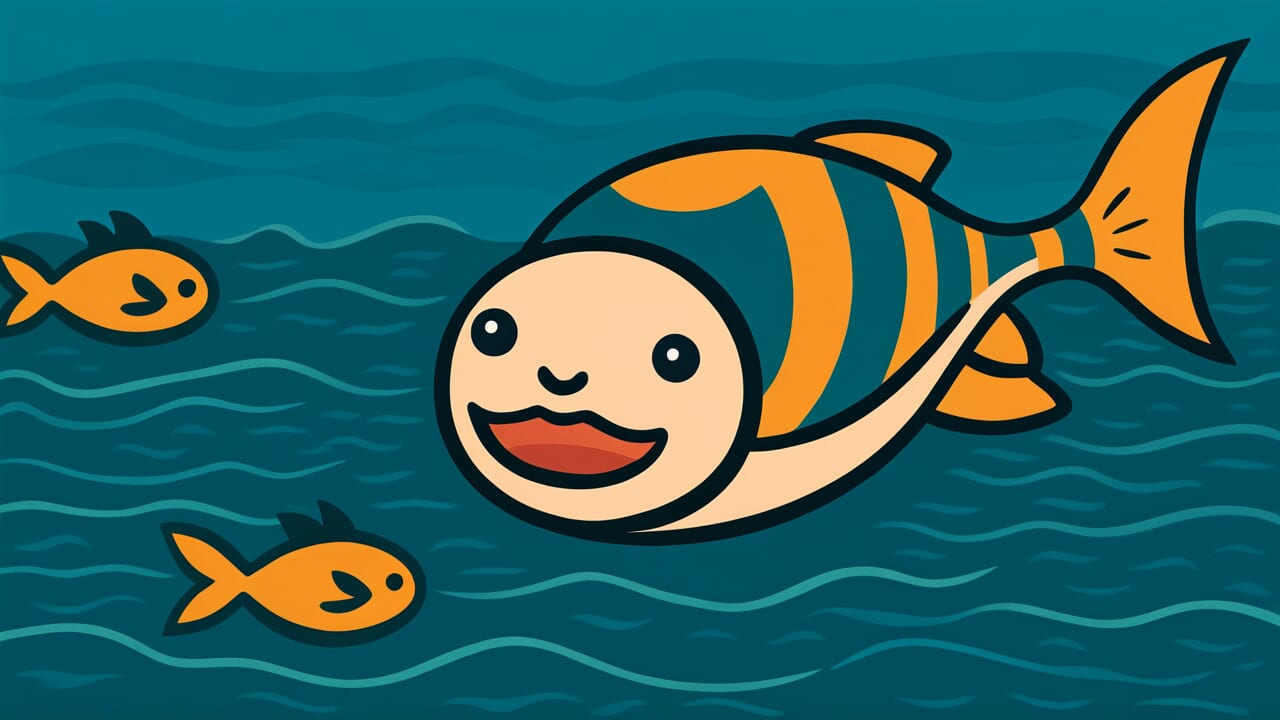How to Read “there’s always a bigger fish”
“There’s always a bigger fish”
[thairz AWL-wayz uh BIG-er fish]
All words are common and easy to pronounce.
Meaning of “there’s always a bigger fish”
Simply put, this proverb means no matter how powerful or important you become, someone else will always be more powerful than you.
The saying uses the image of fish in the ocean. Even the biggest fish you can imagine gets eaten by an even bigger one. This creates a simple picture that everyone can understand. The message goes beyond fish to talk about power, success, and human relationships.
We use this saying when someone gets too proud or thinks they’re the best at something. It reminds us that there’s always room for humility. Whether you’re the smartest kid in class, the best player on the team, or the richest person in town, someone somewhere is smarter, better, or richer.
This wisdom helps us stay grounded when we succeed. It also comforts us when we feel small or powerless. The person who seems so important and untouchable also has someone above them. This creates a chain that connects everyone, from the weakest to the strongest.
Origin and Etymology
The exact origin of this specific phrase is unknown, though similar ideas appear throughout history. The concept became widely recognized in modern times through popular culture and everyday conversation. People have always observed that nature works in hierarchies and food chains.
Ancient societies understood this principle well because survival depended on knowing your place. Farmers knew that bigger predators could destroy their livestock. Merchants knew that wealthier traders could undercut their prices. Warriors knew that stronger armies could defeat them.
The saying spread because it captures something everyone experiences. Children learn it on playgrounds when bullies meet bigger bullies. Adults see it in workplaces when bosses answer to bigger bosses. The phrase became popular because it explains power structures in just five simple words.
Interesting Facts
The phrase uses a food chain metaphor that reflects real ocean life. In marine ecosystems, even apex predators like great white sharks can become prey for larger creatures like orcas. This biological reality makes the saying scientifically accurate as well as metaphorically powerful.
The structure follows a common English pattern for expressing universal truths. Starting with “there’s always” creates a sense of certainty and inevitability. This grammatical choice makes the statement feel like a natural law rather than just an opinion.
Usage Examples
- Manager to employee: “Don’t get too cocky about beating our local competitors – there’s always a bigger fish.”
- Older sibling to younger sibling: “You think you’re tough picking on kids at school, but there’s always a bigger fish.”
Universal Wisdom
This proverb reveals a fundamental truth about how humans organize themselves and compete for resources. Throughout history, people have created hierarchies because they help groups function and survive. Understanding that someone always ranks higher serves as both a reality check and a survival mechanism.
The wisdom addresses our natural tendency toward pride and overconfidence. When humans achieve success, brain chemistry rewards us with feelings of superiority. This helped our ancestors become bold enough to hunt dangerous animals and explore new territories. However, too much confidence becomes dangerous when it blinds us to real threats.
The saying also reflects our deep need for both security and humility. Knowing that bigger fish exist can feel scary, but it also means we’re not alone at the top with all the pressure and responsibility. This creates a strange comfort in recognizing our limitations. We can strive for excellence while accepting that perfection and ultimate power remain impossible goals.
When AI Hears This
People become trapped in their local success bubbles without realizing it. When someone dominates their workplace or friend group, their brain stops looking outward. They anchor their self-worth to beating familiar competitors. This creates blind spots where they mistake small victories for ultimate achievement.
This pattern exists because human brains evolved for small tribal groups. We naturally compare ourselves to people we see daily. Our confidence grows when we outperform our immediate circle. But this same wiring makes us terrible at judging larger competitions. We literally cannot process how many skilled people exist beyond our view.
What fascinates me is how this limitation actually protects humans from despair. If people truly understood how many others surpass their abilities, motivation would collapse. The illusion of being a big fish provides just enough confidence to keep trying. This self-deception becomes a feature, not a bug, in human psychology.
Lessons for Today
Living with this wisdom means finding balance between confidence and humility. When you achieve something important, celebrate your success while remembering it’s part of a larger picture. This prevents the isolation that comes with thinking you’re completely alone at the top. It also protects you from making enemies by acting superior to everyone around you.
In relationships and teamwork, this understanding helps you treat others with respect regardless of their current position. The person you dismiss today might become your boss tomorrow. The student struggling in class might discover talents that surpass your own. Recognizing that positions can change keeps you connected to others instead of creating unnecessary distance.
The challenge lies in staying motivated when you know you’ll never be the ultimate best at anything. The wisdom here is that competition isn’t about reaching the top permanently. It’s about continuous growth and finding your place in the larger ecosystem. You can be proud of your achievements while staying curious about what you can learn from those bigger fish swimming around you.



Comments